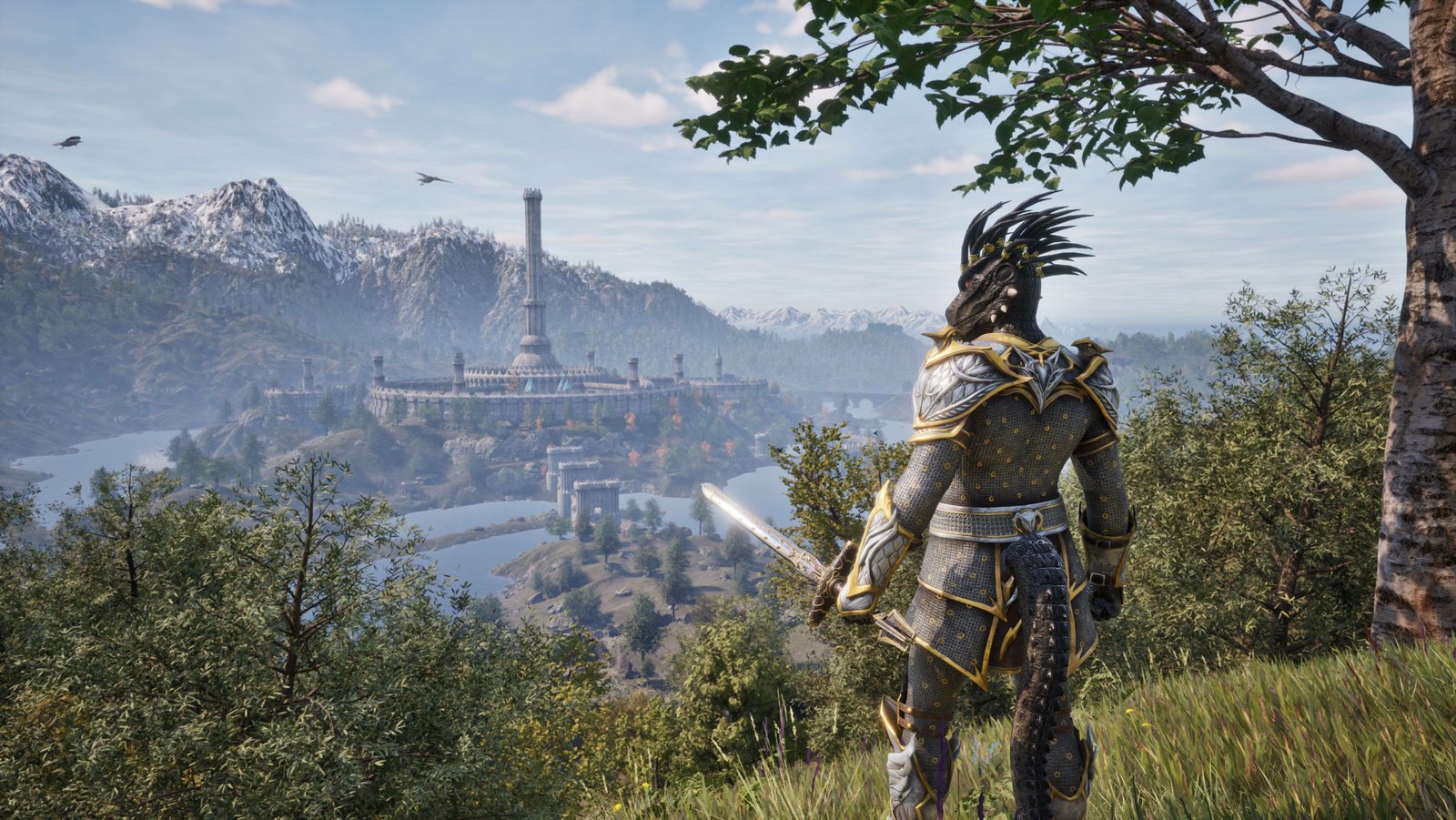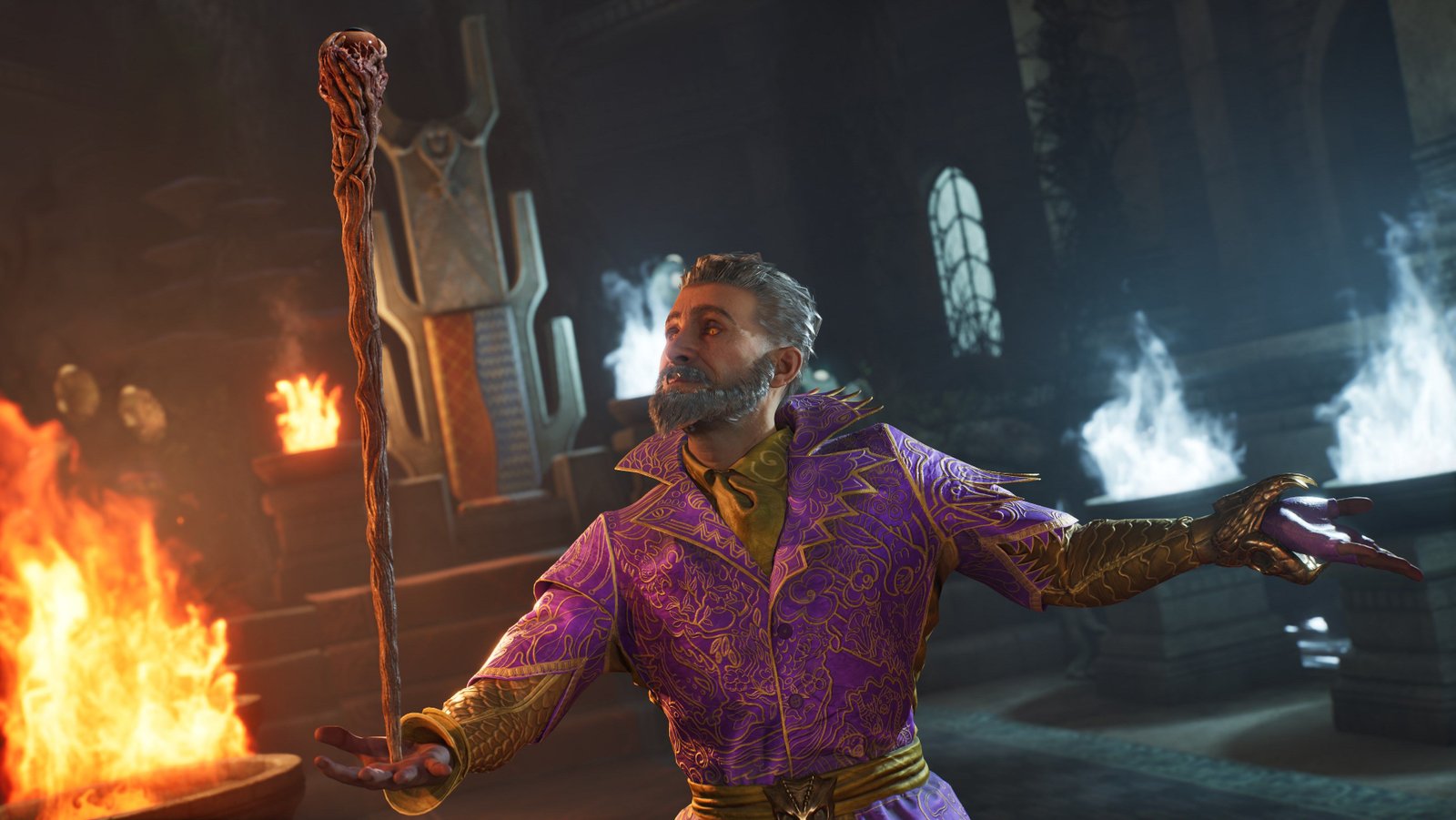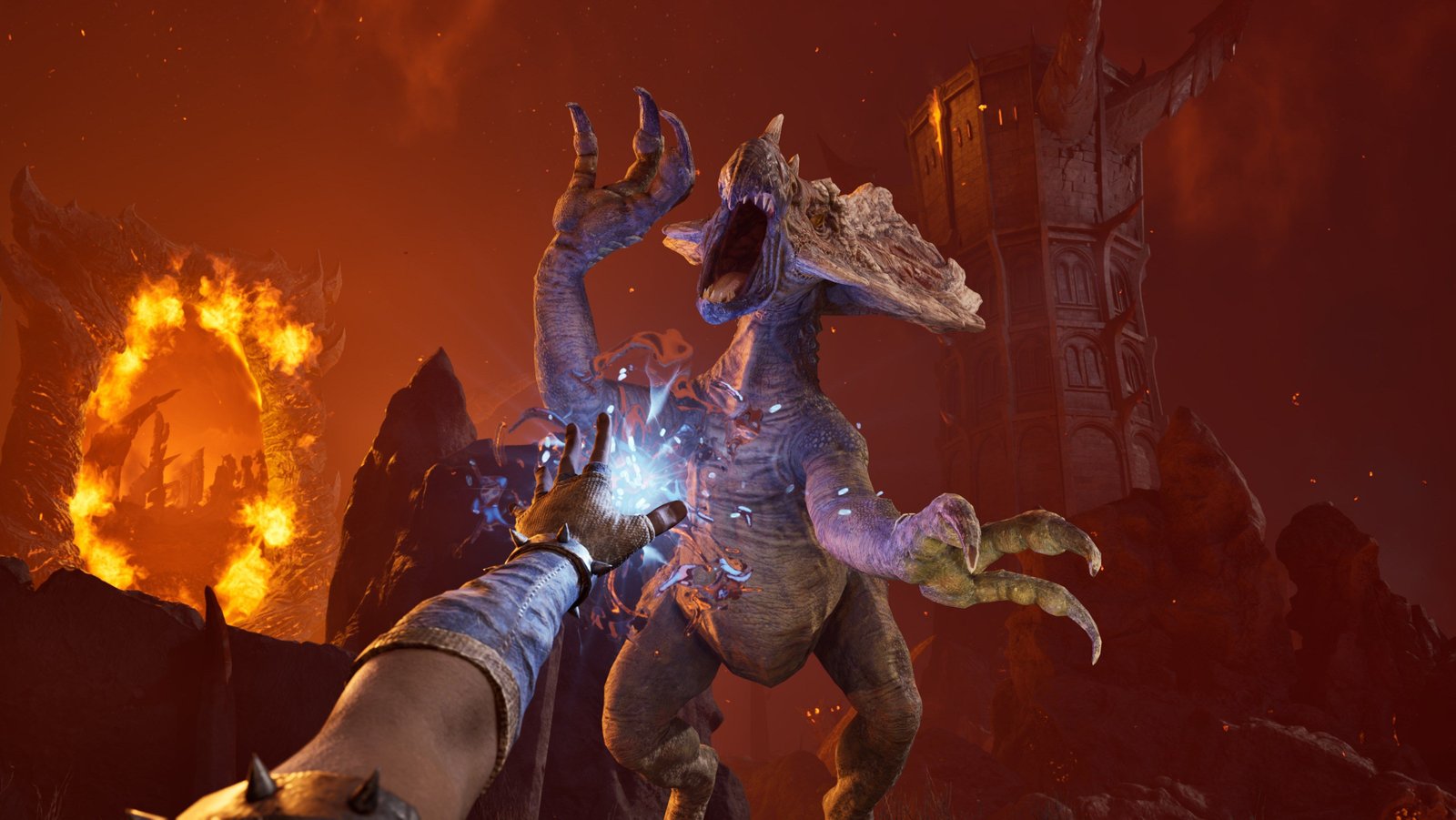I’ll never forget the first time I played Oblivion. My brother had a chipped Xbox 360 alongside a huge binder of pirated games containing everything from Gears of War to Dead or Alive 4 to Viva Pinata, and I had free rein to play whatever I liked.
This period was a magical experience of discovering the next generation of video games and seeing exactly how developers were utilising new technology to take us into adventures that weren’t possible before, and Bethesda’s RPG classic was cream of the crop. To myself and millions of others, we had simply never played a game like this before. It was vast and uncompromising in the size of its world and the sheer amount of stuff you could see and do. It might seem primitive two decades later, but back in 2006, it was virtual wizardry.
Oblivion Was The First Game Of Its Kind For Millions Of Players
After creating a character and following Emperor Uriel Septim and his guards through a dank Imperial sewer, we are asked to do battle with rats, goblins, and zombies, before arriving into a sunny expanse of rolling green hills and crystal blue lakes. It’s an iconic scene of realisation for the player where the exposition and tutorials fall away, and the entire region of Tamriel is there for the taking. You can go anywhere and do just about anything, and the rewards will be unexpected quests, epic loot, and enemy encounters that supersede the simplicity of combat to create something magical.
Epic adventures like this were once exclusive to PC and buried in layers of awkward controls and mechanics that sought to push away more casual audiences at every turn. Following work on Morrowind for the original Xbox, Bethesda saw where the wind was blowing and hoped to craft an RPG masterpiece that welcomed everyone, and it did just that while redefining all the genre hallmarks it held so dear. There will never be another game like Oblivion, even as countless developers – Bethesda included – try so hard to replicate its magic.
It’s why when the remaster was first rumoured, people were so excited, and why, after it was shadow dropped yesterday, hundreds of thousands of players immediately picked it up. Regardless of how Virtuos has updated the visuals and improved on many of its mechanics, there is a magic to Oblivion that people are desperate to relive. It’s one of the first true modern RPGs, an experience that decades of nostalgia have been built upon.
And, even in its remastered form, it’s still a bit of a mess. I wouldn’t have it any other way.
Two Decades Later, Oblivion Remains A Buggy And Beautiful Mess
Oblivion was the game that cemented Bethesda’s reputation as a buggy company. One that would release RPG titles so vast and uncompromising that all manner of bugs and glitches were bound to slip through the cracks. When it first released, these were overlooked since everything else the game did was so groundbreaking, while future games like Fallout 3 or Skyrim attracted communities known for creating quality-of-life mods so comprehensive in their execution that Bethesda releasing its titles in a semi-busted state seemed forgivable.
This is precisely what made the prospect of remastering Oblivion so terrifying. Would Bethesda iron out all the kinks to deliver an overly sanitised experience that might have looked and played great? If it did, what if the game lacked the personality that made the game so brilliant? A justified worry considering how other remasters have been treated in the past, but Oblivion, by some miracle, remains untouched. During the tutorial, I took out the Daedric assassins in such a quick fashion that the NPCs failed to reach their positions and ended up locked in a part of the map I couldn’t access, meaning I had to reload a save to fix the issue. In an ideal world, this should have been ironed out, but if it was, Oblivion simply wouldn’t be the same.
Even the character creator, in which you can create some truly diabolical pieces of work, has survived the transition to Unreal Engine 5.
Combat is still a case of swinging wildly with whatever weapon or spell you have equipped and hoping for the best, taking advantage of elementary physics systems and busted terrain to win battles that should be so much more challenging. But Oblivion doesn’t care, and I love that the remaster has kept so many of these ridiculous quirks untouched. I need to see if the duplication glitches I used as a teenager to break the economy still work, or if Virtuos has at the very least fixed those issues. If it hasn’t, this game will only shine even brighter in my eyes.
Walk around a crowded city, and you will stumble across overlapping lines of dialogue, NPCs partaking in predictable slapstick routines, and a game world that invites you to play with and break all of its systems. Back in 2006, you overlooked these flaws because Oblivion was just so vast and magical, but in 2025, they have developed a newfound reputation that is just as warmly received. In fact, the game wouldn’t be the same without them. Everywhere you turn in this remaster is a fond memory of what the original did so well, and instead of aiming to sanitise what Oblivion used to be, Virtuos deliberately leans into it.
Oblivion is an undeniable relic, a testament to how much the medium has grown when giving us open worlds to explore where anything is possible. But it’s also a beautiful reminder of the simplicity at the core of most video games that helps them shine. The flawed curiosity that gives us the motivation to poke and prod at mechanics until they buckle under pressure.
In any other case, a remaster would strive to address these shortcomings, and yet Oblivion Remastered features a new coat of paint that allows these legendary quirks to shine brighter than ever, ensuring that it still feels through and through like an Xbox 360 game.


